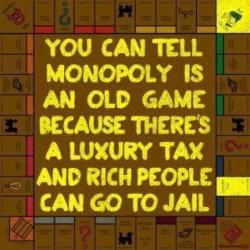Cathy O'Neil, a New York-based data expert, has an excellent post over at Naked Capitalism describing, in ordinary person's terms, her befuddlement at paying 25 bucks to hear big-shot economists such as Paul Krugman, Jeff Sachs and Edmund Phelps speak, then realizing they still have no real idea how the financial system works. O'Neil recalled working at D.E. Shaw, the giant hedge fund, and hearing her then-colleague Larry Summers, another economist with a big brain but even bigger ego, talking about how the "liquidity fairy" would solve our financial problems. This observation brought back my own astonishment at hearing, while researching and writing my book "Capital Offense," knowledgeable people in the derivatives market whisper to me: "Summers doesn't really understand how the markets work."
Which has always been the central reason why it is necessary to break apart the too-big-to-fail structure of Wall Street. An even bigger problem than TBTF, in other words, is Too Big to Understand. WE CAN'T KEEP UP WITH WHAT THE BANKS ARE DOING, FOLKS. Even the smartest of us. The beauty of something like Glass-Steagall was that it solved that problem by ensuring that no matter how arcane trading got, the STRUCTURAL separation of risk-taking investment banks from federally insured commercial banking would do the job of protecting the system. Regulators, even in the best of times, are always going to be outpaced by the complexity and speed of markets. That's what's all but gone now, despite loophole-riddled Volcker Rule, which is limping into existence after getting torn apart by wild packs of lobbyists who resemble the wolves in the move "The Grey." And this is hardly the best of times for regulation anyway, considering the know-nothing movement that has taken over national politics, brought back free-market primitivism, turned the history of the catastrophe of 2008 into a non-event, and permitted the rise of successive fools like Rick Santorum, Newt Gingrich, Rick Perry and so on.
As O'Neil points out, a few economists and (traders-cum-market reformers like George Soros) are now admitting what many of them were once too arrogant to confess: that economics is overwhelmed by what it doesn't know, that it cannot model or master uncertainty. The great flaw of the last decades of economic thinking, the efficient markets hypothesis era, is that there was "an implicit omniscience," as Nobelist Kenneth Arrow, who designed the best-known model of a market-clearing equilibrium, told me for Capital Offense (page 314). "It was not that economists thought there was no uncertainty, but there was a belief that you could understand the consequences of uncertainty." This is what Soros was trying to convey at that event O'Neil was at--that what's needed are theories of uncertainty itself.
Joe Stiglitz has been saying the same thing for years, begging his colleagues (and ironically developing a rep for arrogance himself) to acknowledge what they don't know, and to acknowledge that deviation from rationality is the norm, not the exception.
As O'Neil puts it: "The problem is that the financial system has been allowed to get so complicated
and so rigged in favor of the people with information, that normal people,
including homeowners,
credit card users, politicians, and regulators have been left in the dark."
It's going to be like the ending to one of those bad Hollywood melodramas, when the protagonist doesn't realize at first ' the monster isn't really dead. He will rise again.

No comments:
Post a Comment